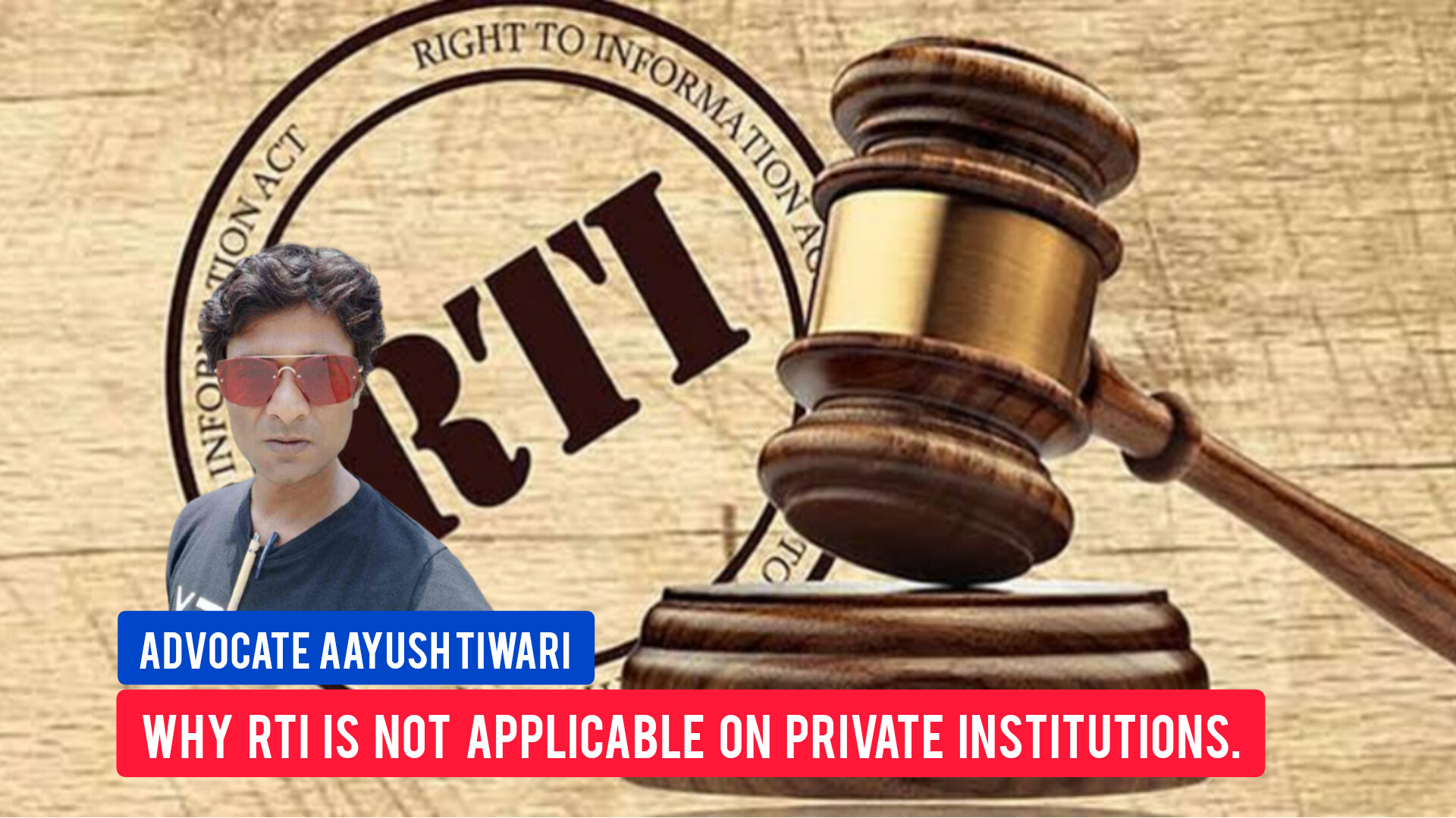
|
Getting your Trinity Audio player ready...
|
The Right to Information Act (RTI) in India is a landmark legislation that empowers citizens to access public information held by government bodies. While transparency and accountability are essential in both public and private spheres, it is crucial to understand that the RTI Act should not extend its scope to private organizations due to legal, practical, and business considerations.
From a legal standpoint, the RTI Act, as enacted in 2005, exclusively pertains to governmental organizations. Section 2(h) of the act specifically defines “public authority” as any government department or agency, parliament, and state legislatures, among others. This definition of public authority signifies the intent of the legislature to limit the RTI Act’s application to solely public entities.
In the landmark judgment of Central Board of Secondary Education v. Aditya Bandopadhyay (2011), the Supreme Court of India clarified that private institutions, including educational ones, do not fall within the scope of the RTI Act. The court affirmed that the act was enacted to ensure accountability and transparency in governmental activities and that private organizations are not subject to the same obligations.
Practically speaking, the application of the RTI Act to private organizations would present several challenges. First, private organizations frequently handle confidential and proprietary information, including trade secrets, strategic plans, and competitive intelligence. Requiring disclosure of such information would create an unjust advantage for competitors and hinder fair market competition.
Another practical consideration is the protection of privacy. The RTI Act upholds the right to privacy as a fundamental right under Article 21 of the Indian Constitution. Private organizations often process personal data of their employees and customers, and forcing them to disclose this information would violate privacy regulations and undermine individuals’ trust in private entities.
Private organizations operate on the basis of their business models, trade secrets, and proprietary information. Extending the RTI Act’s scope to private organizations would jeopardize their economic viability, as they need to safeguard information critical to their success. In fact, courts have recognized that competitors gaining access to trade secrets and commercially sensitive information may directly harm the commercial interests of private entities.
The Delhi High Court, in Girish Ramachandra Deshpande v. Central Information Commissioner and Ors (2012), held that the RTI Act does not apply to private companies, despite them receiving substantial governmental funds. The court emphasized that private organizations should not be subject to the RTI Act’s obligations and that their activities should be regulated through appropriate contractual mechanisms.
While transparency and accountability are essential in all sectors, applying the RTI Act to private organizations in India would raise legal, practical, and business concerns. The intention of the legislation, as evident from its text and the judicial interpretations, is to focus on governmental bodies and public authorities. Upholding the distinct character of private organizations, protecting their proprietary information, preserving privacy rights, and maintaining a healthy business environment all support the rationale for excluding private organizations from the purview of the RTI Act.





